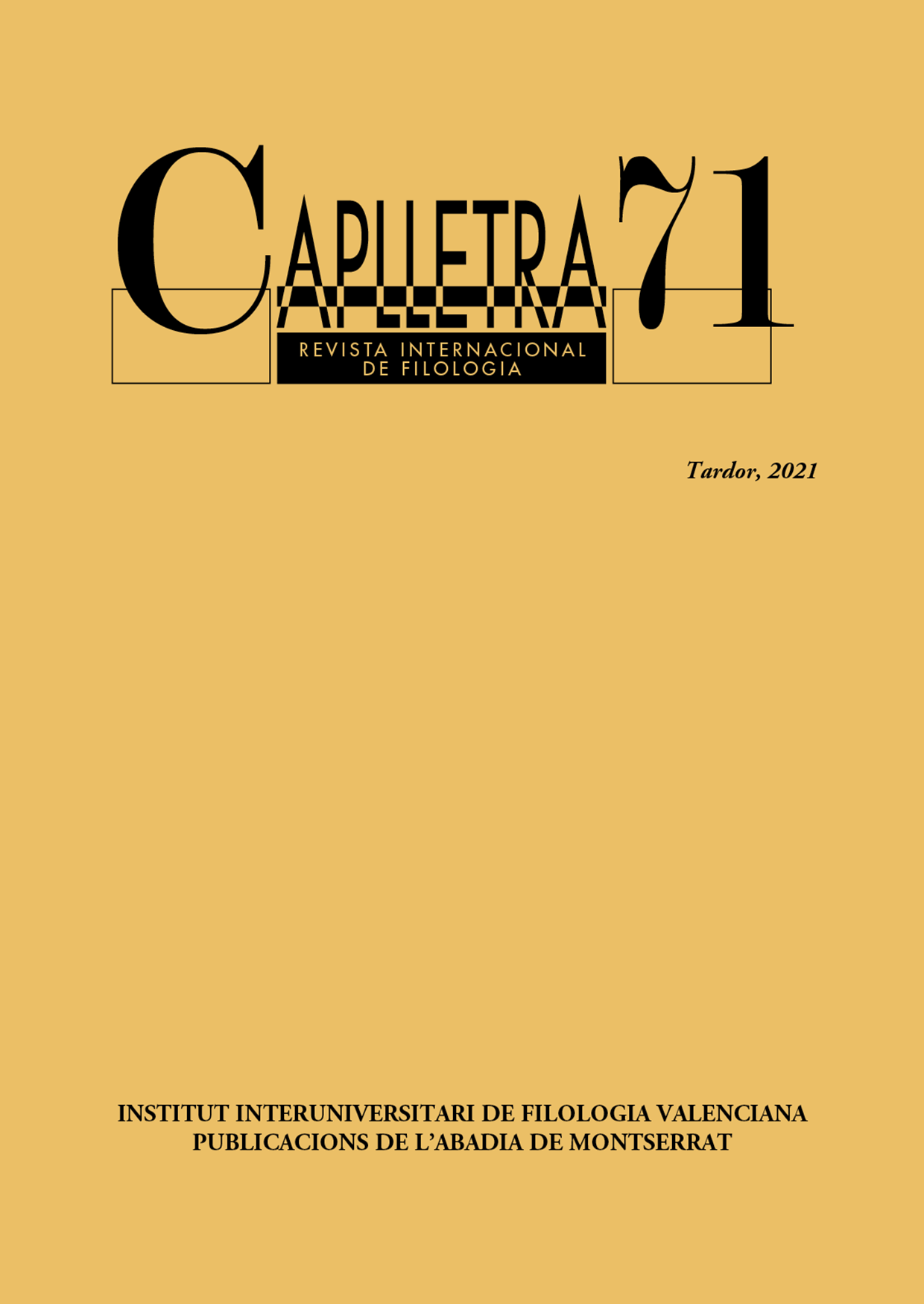In-service teachers’ language attitudes in the Valencian educational system: the effect of the school language programme and the L1
DOI:
https://doi.org/10.7203/caplletra.71.21034Palabras clave:
multilingual education, language attitudes, school language programme, L1, in-service teachers Resumen
Resumen
The study of teachers’ attitudes towards languages has received some attention, as multilingualism has become one of the main educational targets for European school systems (Cenoz 2019; Liyanage & Tao 2020). Several authors (Lasagabaster 2017; Safont 2007) have claimed that language attitudes may play a crucial role in multilingual education. In the Valencian educational system, existing research has examined both students’ language attitudes (Nightingale 2012, 2016; Portolés 2015) and pre-service teachers’ language attitudes (Lasagabaster & Safont 2008; Portolés 2014; Safont 2007) towards the three teaching languages (i.e., Catalan, Spanish and English). Yet, as far as we know, experienced teachers’ attitudes have not been investigated. Thus, the present preliminary study explores 21 in-service teachers’ language attitudes by means of a written questionnaire and a semi-structured interview. In so doing, data were collected in multilingual schools adopting three different school language programmes, namely those of a Catalan-based, a Spanish-based and an English-based language programme. The latter has been a context that has been omitted in previous research. The findings have confirmed the influence of the language programme on in-service teachers’ language attitudes as well as the paramount role of the L1 in the formation of language attitudes. Finally, our findings have pointed out that language attitudes and teaching practices do not always match since some monolingual views are found inside the classroom. Our study concludes that more teacher training is needed on the «Focus on Multilingualism» approach proposed by Cenoz and Gorter (2013).
 Descargas
Descargas
Descargas
Publicado
Cómo citar
-
Resumen657
-
PDF 382
Número
Sección
Licencia
El autor o autora que dirija un trabajo a la redacción de Caplletra para ser publicado tiene que ser la persona titular legítima de los derechos de explotación. La legitimación para la publicación del trabajo tiene que incluir también las imágenes, las tablas, los gráficos y otros materiales que puedan complementar el texto, con independencia de si es su autor o autora.
Copyright. Al publicar el trabajo en la revista, el autor o autora cede a Caplletra. Revista Internacional de Filologia los derechos de explotación (reproducción, distribución y comunicación pública), tanto para la edición impresa en papel como para la versión electrónica.
Todos los trabajos publicados en Caplletra se encuentran bajo una licencia Creative Commons del tipo Reconocimiento-NoComercial-SinObraDerivada 4.0.
RESPONSABILIDAD
Caplletra. Revista Internacional de Filologia no se identifica necesariamente con los puntos de vista sostenidos en los trabajos que publica.Caplletra. Revista Internacional de Filologia declina toda responsabilidad derivada de cualquier vulneración eventual de los derechos de propiedad intelectual que pudiera ser llevada a cabo por los autores o autoras.






